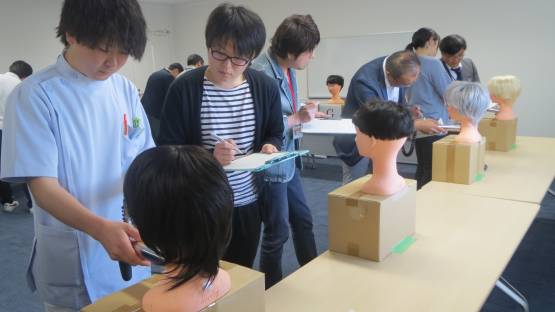The IAEA will be supporting PhD students and the next generation of global leaders to complete an interdisciplinary, post-graduate programme in medical and environmental radiation and social recovery studies, at Hiroshima University in Japan.
Graduates from the four-year Phoenix Leader Education Programme for Renaissance from Radiation Disaster programme will learn to apply Science and Technology in Society (STS) concepts and attain the necessary skills to take appropriate actions during a radiation accident, thereby contributing to the region’s reconstruction process. This is especially important as the population begins to return to former evacuation sites.
The programme is open for applications from 6 to 13 May 2021 for students with master’s or bachelor’s degrees in scientific fields such as medicine, dentistry, pharmacy, medical physics, natural and social sciences, engineering and agriculture. Interested students can apply directly on the website for the October 2021 enrollment. Upon acceptance by Hiroshima University, a limited number of candidates will be able to request financial support under the fellowship programme through the relevant projects of the IAEA’s technical cooperation programme.
“Standing on our historical achievements and experiences, we have established the Phoenix programme to foster global leaders” said Kenji Kamiya, the Programme Director. “After acquiring extensive knowledge in a wide range of fields, such as medical sciences, social and environmental sciences, graduates will be able to support reconstruction and recovery activities in response to a radiation disaster.”
The IAEA, under its Human Health Programme, has been partnering for over 10 years with Hiroshima University and its Phoenix Leader Education Programme by supporting activities such as lectures, the exchange of experts and offering internships for students of the Phoenix programme.
IAEA collaborations with Fukushima Medical University (FMU), Hiroshima University and Nagasaki University, among others, have led to educational research projects that address risk assessment and disaster communication to facilitate more effective interactions between physicians and the general public and to minimize the risk of misinformation during a crisis. The cooperation between these Universities and the IAEA, and the resulting meetings, publications and training sessions, also facilitated the implementation of STS principles in the medical curriculum at FMU to help address challenges encountered by medical professionals in communicating with the returning population. These activities have focused on the training of nurses and physicians who are essential in addressing the diverse concerns of residents.
“STS techniques can help medical professionals at the frontline of radiation challenges in supporting evacuees return after nuclear accidents, as well as populations living in areas with high natural background radiation,” said May Abdel-Wahab, Director of the IAEA Division of Human Health, in her keynote lecture at the 30th Anniversary Conference of Hiroshima International Council for the Radiation-exposed (HICARE) in February 2021.
An earlier IAEA virtual meeting held in October 2020 evaluated the lessons learned in addressing low dose radiation, with regard to communication in the STS context and the challenges encountered by medical professionals in communicating effectively with people returning to former evacuation zones.
Kenji Kamiya, who also serves as the Vice President of Hiroshima University and Fukushima Medical University, added: "The IAEA has been providing Hiroshima University with valuable advice and support in implementing its programme by giving students the opportunity to gain practical experience at the Agency’s Headquarters as well as through its STS project to help us incorporate the lessons from the Fukushima experience in a novel approach to improve the quality and effectiveness of risk communication.”
“Interdisciplinary and international collaboration in this field benefits from the active participation of many IAEA experts from diverse fields, working closely with professionals across the world to achieve better solutions,” said May Abdel-Wahab.
The next technical meeting in Hiroshima is currently in planning. This would conclude the series of meetings in the current STS project focused at addressing advances and the role of radiation monitoring methods, as well as their potential and use for enhancing clear communication. Topics will cover STS guided communication and risk perception, radiation education and monitoring methodologies in the environment and medicine as well as training sessions on how to communicate with returnees and stakeholders.




